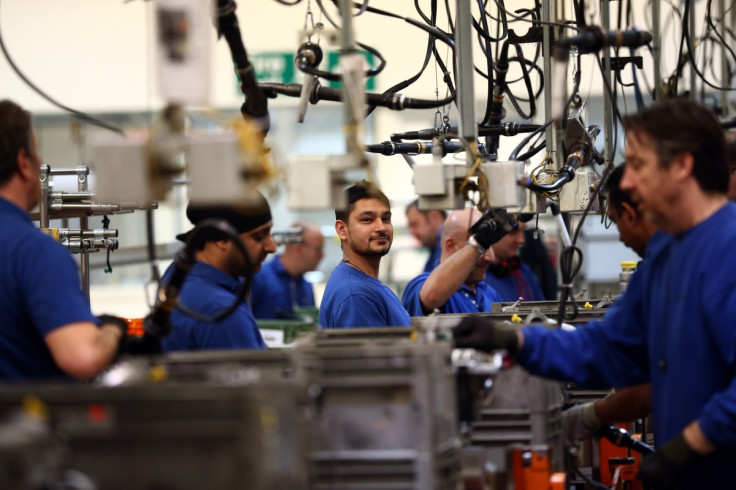UK manufacturing remains strong but pressure from inflation costs grows
UK manufacturing PMI hits three-month low in February but reading remains above long-run average.

Britain's manufacturing sector expanded at the slowest pace in three months in February, as input costs remained close to a record high, according to a survey by IHS Markit and the Chartered Institute of Procurement & Supply (CIPS) released on Wednesday (1 March).
The Markit's Purchasing Managers' Index (PMI) declined from 55.9 in January to 54.6 last month, compared with analysts' expectations for a 55.7 reading.
However, despite the slowdown, the report marked the seventh consecutive month the PMI has exceeded the 50 threshold that indicates expansion and above the survey long-run average.
Markit added increased new business inflows were underpinned by improved domestic and overseas demand, with the latter boosted by the pound's ongoing weakness, which has seen sterling lose around 16% of its value since the Brexit referendum in June.
The pound's weakness, however, saw purchase prices remain close to the highest level on record, albeit input cost inflation pressure eased slightly from January's record high. As a result, output charges also rose at a rate close to January's high.
"Input costs and output charges are still rising at near survey record rates," said Rob Dobson, senior economist at IHS Markit.
"However, the recent easing in both suggests that the impact of the weak sterling exchange rate on prices is starting to subside, providing welcome respite with regards to pipeline inflationary pressures."
New order volumes increased steadily, which saw growth in the manufacturing sector remain solid across the three product categories – consumer, intermediate and investment goods – with the latter recording the sharpest rate of increase.
New export orders rose for the ninth successive month , fuelling optimism in the sector, with almost 50% of firms expecting output to increase over the next 12 months, while only 6% forecast a decline.
© Copyright IBTimes 2025. All rights reserved.






















